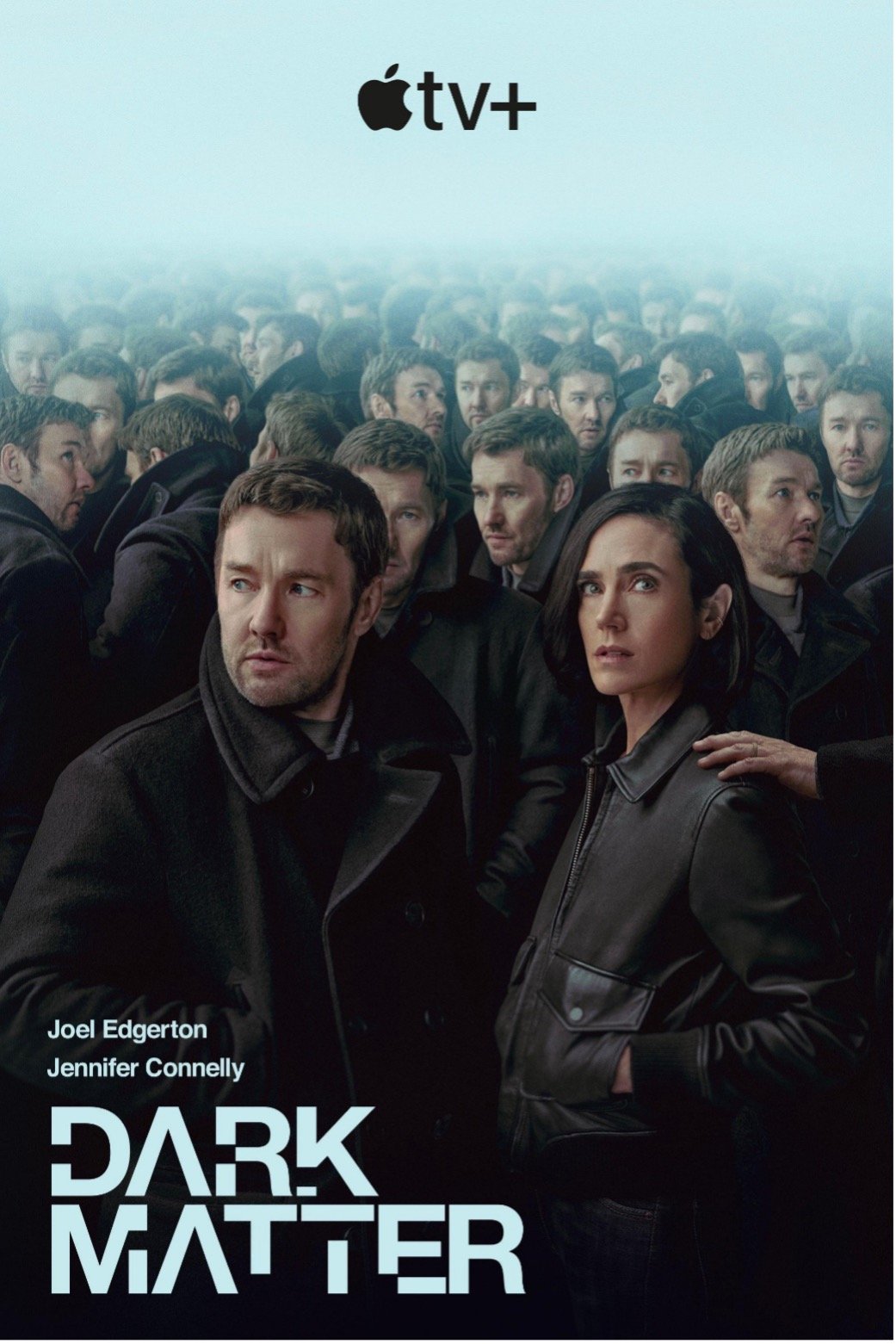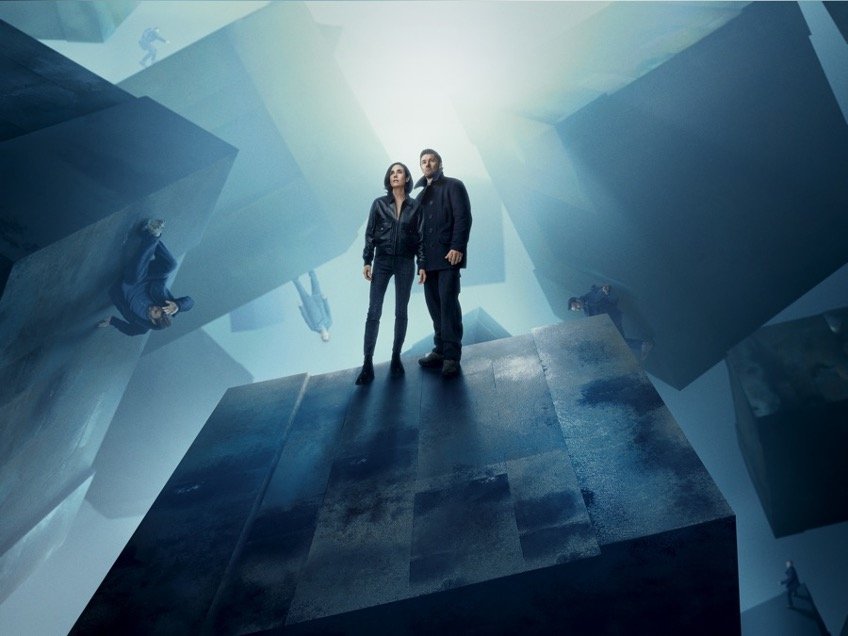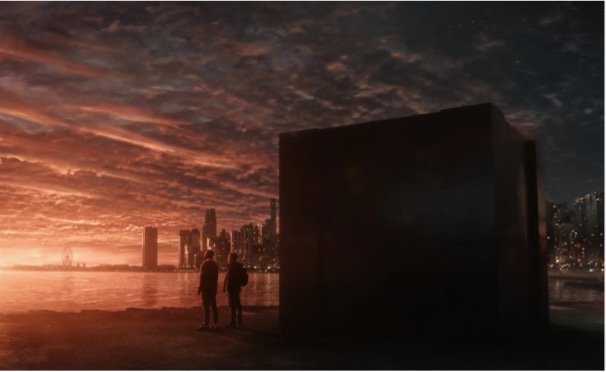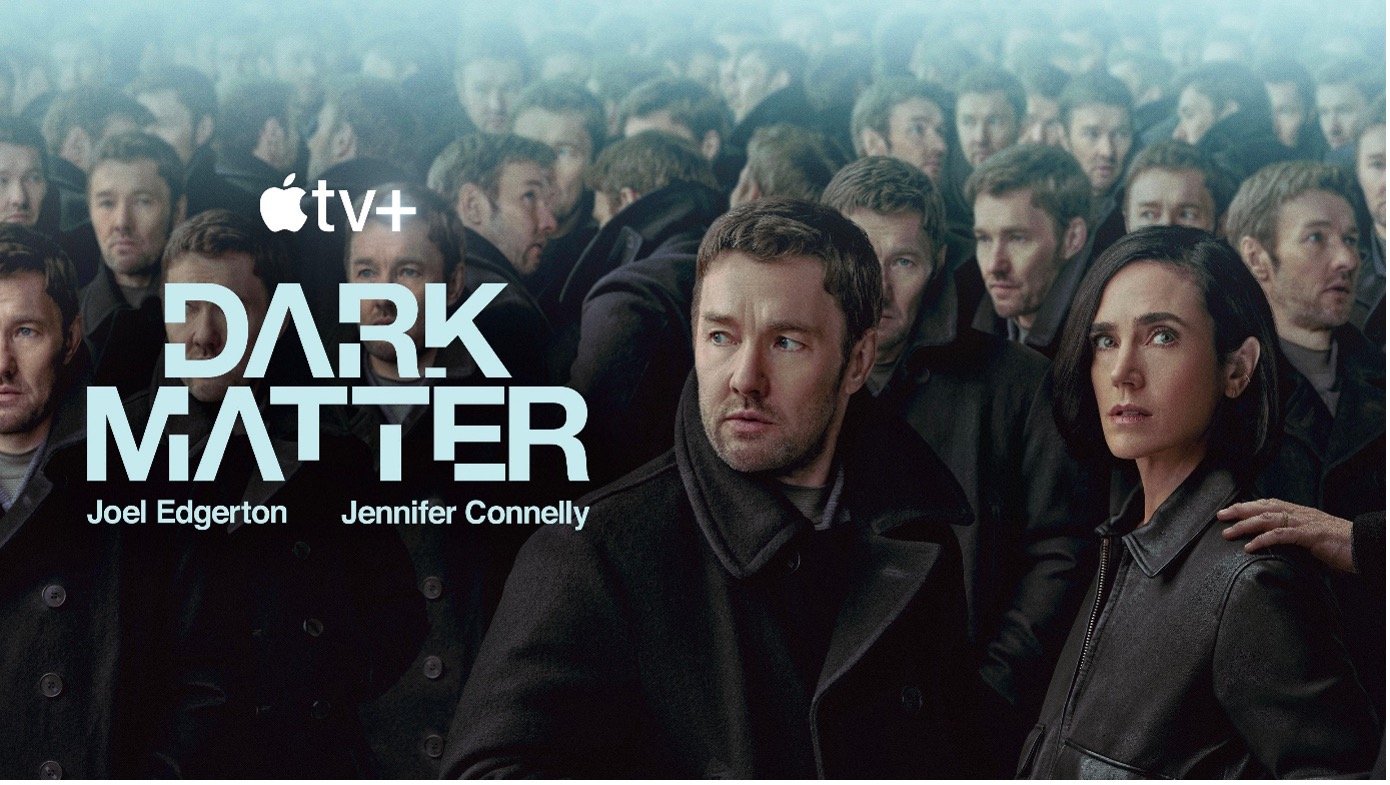
“DARK MATTER”, A MIND-BENDING THRILLER
Cinema Writer/Film Critic Efe TEKSOY; wrote the drama, sci-fi, and thriller series “DARK MATTER”, for America’s Los Angeles-based Internet Newspaper @alaturkanews.

MULTIVERSE CRAZINESS
Dark Matter, adapted from the novel of the same name by American author Blake Crouch, was released on Apple TV + on May 8, 2024. This series adaptation of Dark Matter, which is touted as one of the best science fiction novels of the last decade, promises to give the audience an incredible science fiction experience. The basis of the series, which is adorned with dramatic elements, is based on the laws of physics and the multiverse interpretation of quantum mechanics. Jason Dessen, a university physics professor living in Chicago with his family, is kidnapped and knocked unconscious while walking home one night. When he wakes up, he discovers that his life is in an alternate Chicago, where he decided not to marry his wife Daniela 15 years ago and instead pursues his career as a physicist. Realizing that he has been kidnapped into an alternate version of his life across multiple universes, Jason tries to return to his own reality amidst the mind-boggling spectacle of the lives he could have lived. In this maze of realities, he embarks on a harrowing and nightmarish journey to return to his real family and save them from his alternate reality self, the most terrifying enemy imaginable.
Stars; Joel Edgerton, Jennifer Connelly, Jimmi Simpson, Oakes Fegley, Alice Braga, Dayo Okeniyi, Marquita Brooks, Amanda Brugel, Tiff Abreu, Bassam Abdelfattah, Missy Fierro and Suzy Dias.


OBJECT-ORIENTED ONTOLOGY
In this journey of the character, we are greeted by multiverses that were formed without the influence of humans. In other words, the character is dragged into the middle of an independent world of objects. This brings the viewer to the philosophy of Object-Oriented Ontology (OOO) in Metaphysics, one of the greatest schools of thought of the 21st Century. This philosophical investigation was influenced by Martin Heidegger, who is considered one of the most influential and important philosophers of the 20th Century due to his significant contributions to the philosophy of Phenomenology, Hermeneutics and Existentialism; It suggests the autonomy of objects, their irreducibility to each other and to human consciousness, and that they enter into relationship with their own realities, independent of human consciousness. We also encounter this philosophical view in Immanuel Kant, who is known as one of the founding fathers of German philosophy and one of the greatest philosophers in the history of world philosophy. In Kant’s distinction between “Thinkable and Sensible World” and his view of Noumenon associated with the Thing-in-itself. In this posthumanist worldview, objects have the capacity to relate and even act without humans. American philosopher Graham Harman, one of the pioneers of the Speculative Reality Movement in contemporary philosophy, states in his book Object-Oriented Ontology: “While real objects exist regardless of whether we perceive or think about them, emotional objects exist only in relation to our conscious activities.” he states. Just like the labyrinths and doors that open to the multiverse that Jason Dessen enters in the Dark Matter series exist independently and can only intervene in Jason’s emotional self-consciousness and emotional World.

A POSTHUMAN SEARCH
We see that the character Jason, who embarks on a frightening adventure, is actually embarking on a Posthuman quest to reach maturity. Thus, this brings us to the Übermensch philosophy of Friedrich Nietzsche, one of the greatest philosophers of Continental philosophy, in which the human being is a temporary phenomenon that must be overcome. On the other hand, we see that in the black labyrinths in Dark Matter, chaos actually prevails and this chaoticness replaces reality. The basic thesis of Georg Wilhelm Friedrich Hegel, one of the founding figures of the philosophical movement known as German Idealism; “What is rational is what is real, what is real is rational”. In other words, the basic idea of reality theory is that the subject is connected to the object and one cannot exist without the other. According to Hegel, the rational, that is, the rational, is reality. However, the Dark Matter universe presents us with reality as almost irrational. In this process, it brings the audience to the last great metaphysical system formed by the Danish philosopher Søren Kierkegaard, the father of the philosophy of Existence, who greatly admired Hegel’s philosophy but later waged a cultural war on it. According to the dialectical law of the pure Hegelian style, the thesis encounters its antithesis, which is the antithesis in Kierkegaard’s philosophy.
Dark Matter is a science fiction, drama and thriller genre; It is an Apple TV+ series that will be enjoyed by those who love mind-blowing productions such as Inception, 12 Monkeys and Shutter Island.
EFE TEKSOY
REFERENCES AND SOURCE
HARMAN. Graham, Object-Oriented Ontology: A New Theory of Everything, Pelican Books.
HARMAN. Graham, Object-Oriented Ontology: A New Theory of Everything (Nesne Yönelimli Ontoloji: Her Şeyin Yeni Bir Teorisi), Oguz Karayemis, translate Istanbul: Tellekt Press, 2023
HEGEL, G.W.F. (1977). Phenomenolohy of Spirit, A.V. Miller, translate, Oxford University Press, Oxford, 2005
KIERKEGAARD, S, Either/Or: A Fragment of Life, Ya/Ya Da, Nur Beier, translate, Istanbul: Alfa Yayınları press, 2020
KANT, Immanuel (1996). Critique of Pure Reason, trans. by Werner S. Pluhar, Hackett Publishing.
KANT, Immanuel (1999). Critique of Pure Reason, ed. & trans. by Paul Guyer & Allen W. Wood, Cambridge University Press.
KANT, Immanuel (1992). Critique of Pure Reason, trans. by Norman Kemp Smith, Macmillan. KANT,





